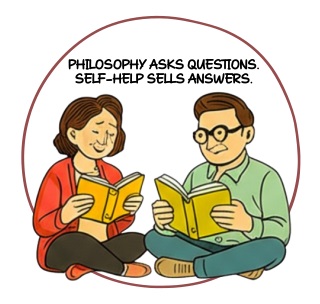
Bad therapy harms more than no therapy at all, much like poor surgery leaves a patient worse off than the original ailment.
Therapists create one of the greatest risks in psychotherapy when they mishandle past trauma. Exploring painful experiences illuminates current struggles, but therapists must calibrate carefully. Some therapists push too far, too fast and retraumatize clients because they lack the skill to navigate trauma safely. When therapists discuss trauma in ways that overwhelm rather than support, they reactivate painful emotions without providing adequate coping strategies, and clients end up destabilized instead of healed.
A therapist’s approach, skill, and fit often determine outcomes. Training background and individual ability vary significantly, but research consistently shows that the “therapeutic alliance”—the relationship between client and therapist—predicts outcomes more reliably than specific techniques. When clients feel understood and safe, difficult work transforms them. When the alliance falters, even sound methods harm.
Therapists must stay attuned to a client’s emotional state and boundaries. If a client feels retraumatized, the therapist must address those feelings immediately. A skilled therapist pauses, validates the experience, and adjusts the approach. When therapists fail to respond, clients should seek someone else.
Productive discomfort differs from harmful retraumatization. Growth requires moving through difficult emotions, but the distinction lies in whether the client feels supported or abandoned—whether they build coping resources or simply relive old pain.
Idea for Impact: The goal of analytic therapy is not excavation for its own sake, but healing that weaves the past into the present without leaving the client more fragmented than before.
 Self-help and philosophy both claim to enhance life, but they approach the task from opposite ends. Self-help assumes you know what you want—success, happiness, confidence—and hands you the tools to get there. Philosophy asks whether those goals are worth wanting in the first place.
Self-help and philosophy both claim to enhance life, but they approach the task from opposite ends. Self-help assumes you know what you want—success, happiness, confidence—and hands you the tools to get there. Philosophy asks whether those goals are worth wanting in the first place. In the glossy canon of business magazine profiles and business school leadership panels, few rituals are as misleading as the executive career interview. A high-powered figure is asked for wisdom, and what follows is a polished origin myth framed as mentorship—a display of survivorship bias wrapped in aspirational prose. Biography
In the glossy canon of business magazine profiles and business school leadership panels, few rituals are as misleading as the executive career interview. A high-powered figure is asked for wisdom, and what follows is a polished origin myth framed as mentorship—a display of survivorship bias wrapped in aspirational prose. Biography .jpg)
.jpg)
 Mentorship once meant absorbing polished advice from someone with gray hair, a Rolodex thick with gatekeepers, and the power to open doors. Age conferred authority. Experience granted relevance—and access.
Mentorship once meant absorbing polished advice from someone with gray hair, a Rolodex thick with gatekeepers, and the power to open doors. Age conferred authority. Experience granted relevance—and access. Ever feel lonely even when you’re around others? Loneliness isn’t about being alone; it’s about disconnection. It’s the lack of someone who
Ever feel lonely even when you’re around others? Loneliness isn’t about being alone; it’s about disconnection. It’s the lack of someone who  The biggest obstacles in your way aren’t out there; they’re in your head—and in your habits. Drop them, or they’ll drag you.
The biggest obstacles in your way aren’t out there; they’re in your head—and in your habits. Drop them, or they’ll drag you.
.jpg)

 Unfortunately, many therapists still cling to those outdated methods of analytic or psychodynamic therapy that date back to
Unfortunately, many therapists still cling to those outdated methods of analytic or psychodynamic therapy that date back to